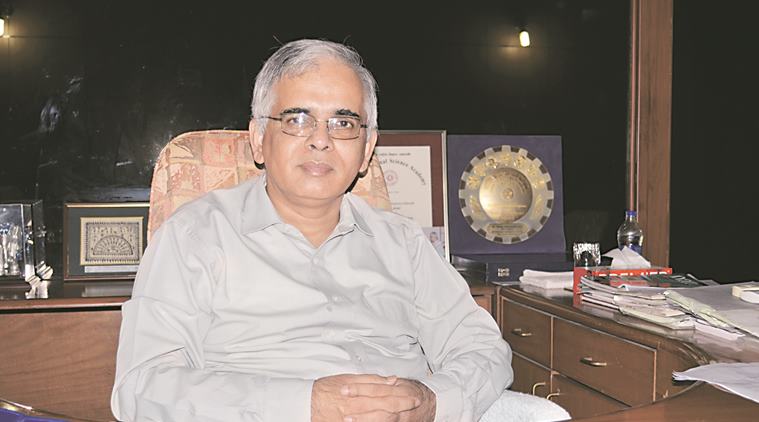 Shekhar Mande
Shekhar Mande
The National Centre for Cell Science (NCCS) carries out cutting-edge research in cell biology. As the institute celebrates 30 years today, director Dr Shekhar Mande tells The Indian Express about the journey, important discoveries and plans to coordinate with the Indian Human Microbiome Initiative.
Please share some instances of significant research.
Some of the groups at NCCS have achieved great progress in cell biology research, including the discovery of the first long non-coding RNA. Dr. Anjali Shiras’s group at NCCS discovered that RNA can be non-coding, which goes against the basic tenets of the central dogma of molecular biology. This dogma states that specific regions of the DNA (genes) code for proteins via an intermediate RNA molecule. Shiras discovered that other kinds of RNA molecules also exist, which do not code for proteins, thus starting the field of long non-coding RNAs. Dr. Arvind Sahu’s work on how viruses overcome the human host’s immune response has also been path-breaking. His work, which sheds light on the mechanisms of immune evasion by viruses, can thus help design more efficient therapeutic strategies.
Several groups are engaged in cancer, diabetes and other research. What are the latest developments?
One of the core research strengths of NCCS is cancer biology. Different groups here have addressed many fundamental questions in this area. Dr Sharmila Bapat’s group has shown that the ovarian cancer tissue consists of not just one cell type, but that the tumor mass is a heterogenous collection of cells. This underscores the need to target all these different cell types when designing therapies against ovarian cancer. Dr. Gopal Kundu has developed molecules and their nano formulations, which could be used to fight against breast cancer. These findings have also been recognised by the National Innovation Foundation.
Technologies developed at NCCS have been commercialised. What are the key ones in the market?
We have been interfacing with industry. Preparations from fenugreek (methi) seeds, which appear to help mitigate obesity and diabetes, have been commercialised. Some of the first few technologies that were developed at NCCS such as the cryopreservation of bone marrow cells and large-scale expansion of human skin culture for the treatment of burns were also transferred to public hospitals. Many more findings and technologies of NCCS have been patented, and some are in the process of commercialisation.
What are the challenges faced by scientists in bringing research from the laboratory to the patients?
The major challenges that are faced by scientists is that discoveries resulting from basic research carried out at the laboratory are not at a stage that can be readily taken up by the industry for large-scale commercialisation. This gap between the two ends needs to be filled, for successful commercialisation of technologies developed by the scientists. Not being an exception to this, NCCS too has faced this challenge. Recognising that one of the potential ways for filling this gap is to promote start-ups, we have taken up the mantle of moving in this direction. NCCS was recently awarded the prestigious grant to set up an ATAL Incubation Centre, which proposes to promote start-ups, a few of which are likely to take the discoveries made at NCCS towards further commercialisation.
Space has been a problem for various scientific institutes. How has NCCS tackled it?
Partnering with appropriate hospitals on the one hand, and with the biotech industry on the other, would enable NCCS to make a much bigger contribution to the society. This would involve expansion in many ways, concurrently requiring much more space than the 10 acres of land currently being used by NCCS, which has been made available by Pune University.
What are the centre’s future plans?
One of the major initiatives of NCCS is to coordinate with the Indian Human Microbiome Initiative. This mission is likely to be similar in magnitude to the Mars mission or the Moon mission. This project attempts to sample 20,000 Indians from distinct ethnic backgrounds for the bacterial populations that they host on and in their bodies. It may be mentioned here that all humans host more bacterial cells than their own cells. These bacteria play important roles in human physiology and the overall health of an individual. However, the spectrum of these bacteria varies widely with ethnic backgrounds, food habits, etc. This necessitates studies that are relevant to the Indian population. The Indian Human Microbiome Initiative, which will be spearheaded by NCCS in the coming years, will specifically address this requirement and help provide invaluable information pertinent to the health of the Indian population. NCCS also plans to set up a primary cell banking, which will serve as a repository of primary cell cultures. This serves as better laboratory models to study human diseases, being closer in function to the human body than the traditionally-used cell lines.